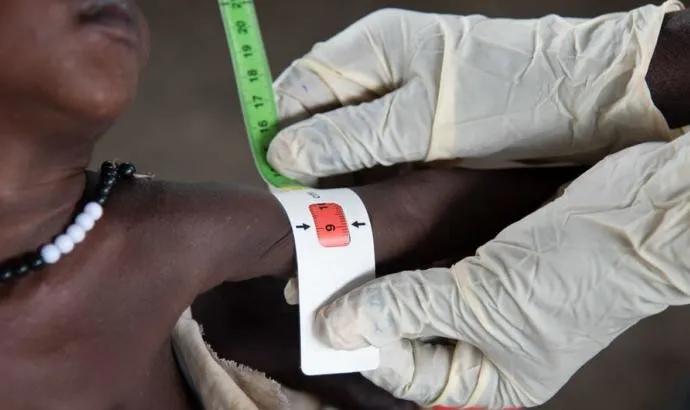Africa-Press – Namibia. THE Namibian Prime Minister, Saara Kuugongelwa-Amadhila, has responded to burning questions on malnutrition in the country, highlighting statistics that show that 1,835 Namibians are affected.
The Prime Minister said that the government has introduced a plethora of interventions to rescue Namibians dying from hunger. This, amongst others, includes a programme to feed over 30,000 children and close to 10,000 pregnant and breastfeeding women in regions hard hit by dire food insecurity.
According to figures from the Namibia Statistics Agency, Omaheke has the most Namibians struggling to put food on the table, with a total of 738 malnourished people, followed by //Kharas, with 744 facing absolute hunger.
Answering questions in Parliament this week, Kuugongelwa-Amadhila denied claims that rising malnutrition cases are a result of the SWAPO government neglecting human rights protection.
“Government is deeply concerned about reports of citizens losing lives due to malnutrition. Any life lost is a tragedy, and we extend our heartfelt condolences to the affected families. Malnutrition is a result of various interconnected factors, some of which are environmentally related, such as climate change, drought, and poverty. Addressing malnutrition requires tackling these underlying issues through multi-sectoral approaches,” Kuugongelwa-Amadhila said.
She added that, in this regard, the government has been implementing measures to ensure social protection for those with vulnerabilities (such as the elderly, those with disabilities, orphans, other vulnerable children, and low-income individuals).
The Prime Minister summarised that earlier last year, the government constituted a multi-sectoral team to conduct an in-depth investigation in the Omaheke Region following reported cases of malnutrition.
“The investigation recommended the extension of some ongoing interventions, which include the provision of medical care for the malnourished, support for feeding programmes, soup kitchens, and the establishment of food production centres within the affected communities,” the Prime Minister said.
She added that, in addition, the Ministry of Health and Social Services undertook a Standardised Monitoring and Assessment of Relief and Transitions (SMART) survey from 22 August to 30 September 2024. The survey aims to generate timely, representative, and reliable data on the nutrition status of children (6 to 59 months) and women (reproductive age) while also determining the current mortality situation in Namibia.
The Prime Minister also highlighted that other programmes include strengthening school feeding programmes as well as collaborative efforts launched by the World Health Organisation (WHO), the Ministry of Health and Social Services (MoHSS), and the Ministry of Gender Equality, Poverty Eradication and Social Welfare (MGEPESW) in the aftermath of the unfortunate deaths in Omaheke.
She added that this initiative would increase access to quality nutrition and protection services for vulnerable populations in the Omaheke, Khomas, and Kunene Regions to promote health, development, and wellness and contribute to the reduction of preventable deaths and inequities.
Kuugongelwa-Amadhila said that the project was launched in October 2024 and aims to ensure that 34,681 children under the age of five are reached with nutrition interventions in the three target districts, as well as 9,204 pregnant and lactating mothers benefit from nutritional interventions in the three targeted districts.
For More News And Analysis About Namibia Follow Africa-Press






